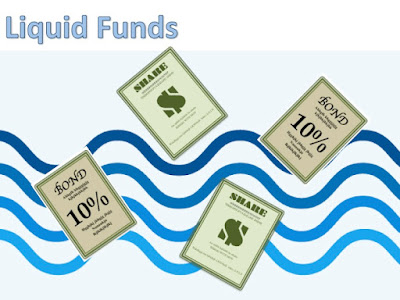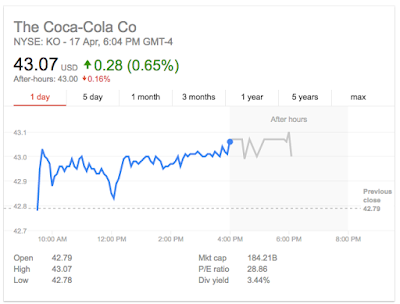Mutual funds can
be categorised based on a few aspects as follows:
- Nature of underlying assets: Equity/ Debt funds
- End use of income: Growth/ Regular Income
- Type of fund management: Active/ Passive
- Liquidity: Liquid funds
- Exchange Traded Funds
Equity versus Debt funds:
This aspect is
based on what type of assets into which the money is invested. There are three
possible sub-categories:
- Invest funds 100% in equity shares of companies
- Invest funds 100% funds in debt instruments like government bonds, treasury bills, corporate bonds, etc.
- Hybrid funds where money is partly invested in shares and partly in debt instruments
Growth versus Regular Income Funds:
In a growth fund,
the income like dividend received from the underlying assets are reinvested.
Growth funds are usually equity based.
On the contrary in
a regular income fund the income earned by the fund by way interest, dividend,
etc is distributed to the unit holders.
One obnoxious
practice many mutual funds engage in is that they distribute sale proceeds of
investment assets (capital receipts and not income receipts) as dividends to
unit holders.
Active vs Passively Managed Funds:
Mutual fund
managers constantly churn portfolios with an intended objective of beating the
performance of certain benchmark indices like S&P 500, BSE Sensex, etc.
Such funds are called actively managed funds. The funds charge high fund
management fees (3–4%) as a justification for actively managing the funds. This
is does not benefit the mutual fund investors.
On the contrary,
passively managed funds reflect a popular index like S&P 500 and BSE
Sensex. In this case the fund manager simply makes an one-time investment in
the exact proportion corresponding to the composition of the index, and simply
sits quiet. Any changes will be made only when there is a change in the
composition of the index. Since the fund is not actively managed the fund
management fee is very low (usually below 0.50%). The passive funds are
beneficial for the investors as the actively managed funds have any established
track record of superior performance over a long period of time.
Liquid Funds:
Liquid funds are
meant for companies and corporations which tend to hold huge funds for
temporary periods. They would like to invest these funds and earn returns for
short periods of time. Such funds are called liquid funds. These funds offer
only limited returns and almost negligible growth (capital appreciation).
Liquid funds are not meant for common investors who are on the way of building
wealth.
Exchange Traded Funds:
Exchange traded
funds (ETFs) are a totally unique concept of a mutual fund. It is doubtful
whether an ETF can be discussed in the same breath with a mutual fund at all.
The units of an
ETF are listed on the stock exchanges and trade shoulder-to-shoulder with
shares. Thus ETFs provide following unique features to an otherwise normal
mutual mutual fund:
- Convenience - unlike subscription to mutual funds, there is absolutely no paper work involve. One can simply buy and sell them on the stock trading platform.
- No special redemption process: If an investor wants to liquidate the investment with a regular mutual fund he or she has to submit an application to the mutual fund for redemption. This may take some time. However in the case of ETFs the investor simply sells on the on-line trading platform and the proceeds.
- Exchange Traded Funds mostly track popular indices like the S&P 500 and BSE Sensex, NIFTY 50 and so on and therefore are passively managed with consequent low fund management fees.
Suggested Related/ Further Reading:
- What Is The Difference Between Dividend and Growth Fund. Which Is Better?
- What is an Exchange Traded Fund?
- How Frequent Changes to Mutual Fund Portfolio Affect Investor Interest?
- How to Choose the Right Mutual Fund to Invest?








